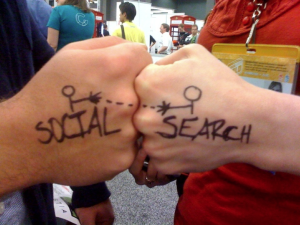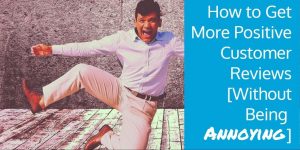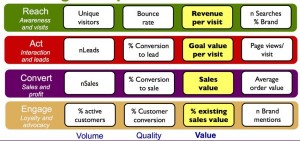— May 30, 2019
This is the second article in my series on Sensemaking. For links to all the other articles, go to: Sensemaking, The Big Issue Facing Both Our Customers And Us.
It’s impossible to begin to think about sensemaking unless we have a foundation. That is, a context in which we are seeking to make sense of things. It’s this context that provides the basis for all our sensemaking activities.
While my normal inclination is to start with the customer in defining the context, that’s pretty meaningless. All you have to do is ask, “Who’s the customer?”
So we have to start within ourselves and our own organization. It starts with a simple question, that too often we fail to answer, or at least in a meaningful way.
What is our purpose?
I didn’t ask, what is it that we sell, what’s our value proposition, what problems do we solve, who are our target markets, or any of the classic question questions we ask in developing and executing our business strategies. These are all important, but the answers to these are grounded in “what is our purpose?”
Our purpose encompasses a number of things, including our values, what we want to stand for, why we exist as an organization. Sometimes we think of it as our vision.
The purpose or vision is what unifies us as an organization. It is, perhaps, what attracts us to work for an organization (particularly when things are tough.) Somehow the purpose, vision, values of the organization are aligned with those we hold as individuals.
The purpose is always something deeper than “make a profit, create a superior return for our shareholders, be a market leader in ….., grow faster than the competition…..”
Too often organizations defining their purpose in these terms struggle. They may work well for a few years, but over time, because they don’t stand for anything more substantial to their people, their customers, their markets, they lose their way.
Peter Senge thinks of it, at an individual level, as something that’s more of a “calling.” It’s this purpose that creates a tension between the way things are and our vision for what they could be.
I won’t take the time, here, but look at some of the enduring leaders in any market. While they are probably financially very successful, as you examine them, they have a deeper purpose or vision that guides everything they do.
This purpose provides the context for defining the problems we solve and the customers we serve.
Another foundational element is obsessive learning–at an individual and organizational level. The tension that the purpose creates with how things currently are, drives constant curiosity and a drive for learning and applying that learning to what they do, how they best serve their customers, how they best achieve their purpose/vision.
The other foundational capability is the ability to think in systems, developing models and frameworks within which they can start to structure the issues they face/address, or how they achieve their vision.
Many of you may recognize these as parts of Peter Senge’s, The Fifth Discipline. They are, you may want to reread this to develop a deeper understanding of these principles and how to put them to work in your own sensemaking efforts.
Again, these are foundational because they provide the context and framework for out ability to become sensemakers for our own organizations and in working with our customers.
As we explore sensemaking, you will see new individual and organizational skills, behaviors, attitudes will be required for success in this new world. I will do a deep dive into these at the end of the series.
Business & Finance Articles on Business 2 Community
(33)
Report Post







